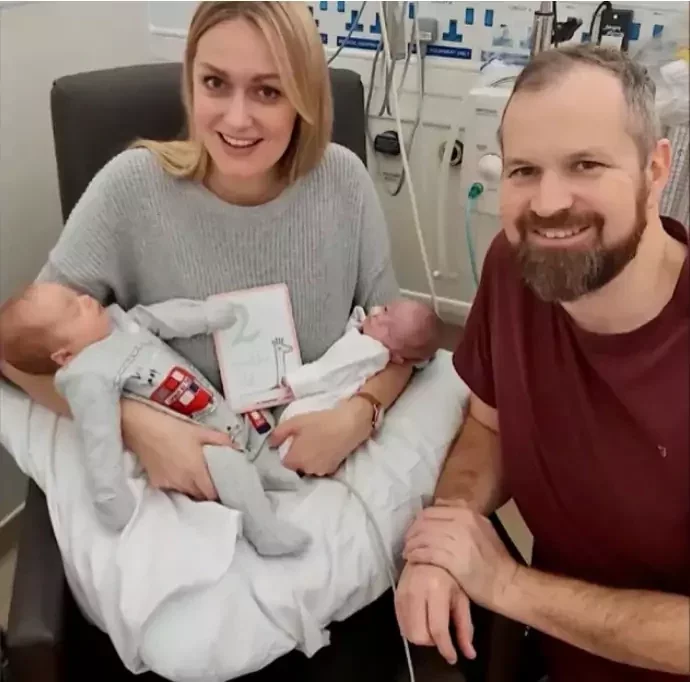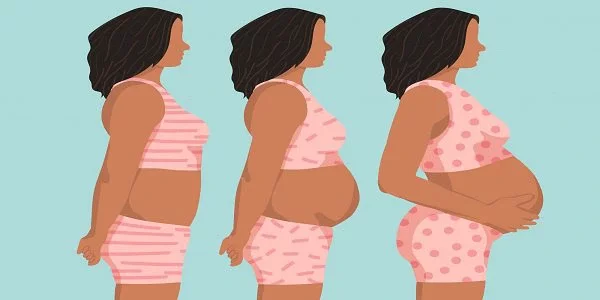The chances of this happening are so rare that fewer than 10 cases have been recorded.
So, how does this happen, you wonder? It all boils down to the way our reproductive systems function. During a single menstrual cycle, a woman's ovaries can release more than one egg. And when sperm meets one of these eggs, pregnancy begins. However, if a woman continues to ovulate after becoming pregnant, another egg might get fertilized by another sperm. The chances are very low, but it's possible, nonetheless.
The outcome? Twins, but not the kind you'd typically imagine. One baby starts developing from the initial pregnancy, while the other begins its journey from the second fertilised egg.
This occurrence is so rare that in most cases, doctors only discover it during routine ultrasounds or other medical examinations.
It can be a bit trickier than a regular pregnancy. The twins might not share the same due date since they're on different developmental timelines. This can mean a more complicated pregnancy and delivery, but rest assured that medical professionals are well-equipped to handle it.
Symptoms of superfetation are similar to those of a regular pregnancy, including morning sickness, fatigue, weight gain, back pain, and an increased appetite.
According to Dr. Lillian Schapiro, an Atlanta gynaecologist, "Superfetations are rare for a variety of reasons. First, women typically ovulate only once per cycle, releasing one or more eggs simultaneously. If fertilisation by the man's sperm is successful, the egg or eggs then implant in the uterus and the pregnancy begins, with no further ovulation occurring."
The chances of this happening are so rare that a 2008 study found fewer than 10 recorded cases in the world, one of which is the case of Rebecca Roberts.
In 2021, a woman named Rebecca Roberts made headlines when she gave birth to twins, Noah and Rosalie, who were conceived three weeks apart. Roberts had already been pregnant with Noah when she ovulated again and conceived Rosalie.

Rebecca's doctors were surprised by her case, but they confirmed its authenticity. They explained that superfetation is most likely to occur in women who have a short menstrual cycle or are breastfeeding. Shocked and elated, Rebecca expressed her joy at this medical miracle, saying, "I couldn't believe it had happened to me, but it did. It's lovely. It's like winning the lottery."
Rebecca and her babies are all healthy and happy. They are a living example of this unusual occurrence.

















Comments